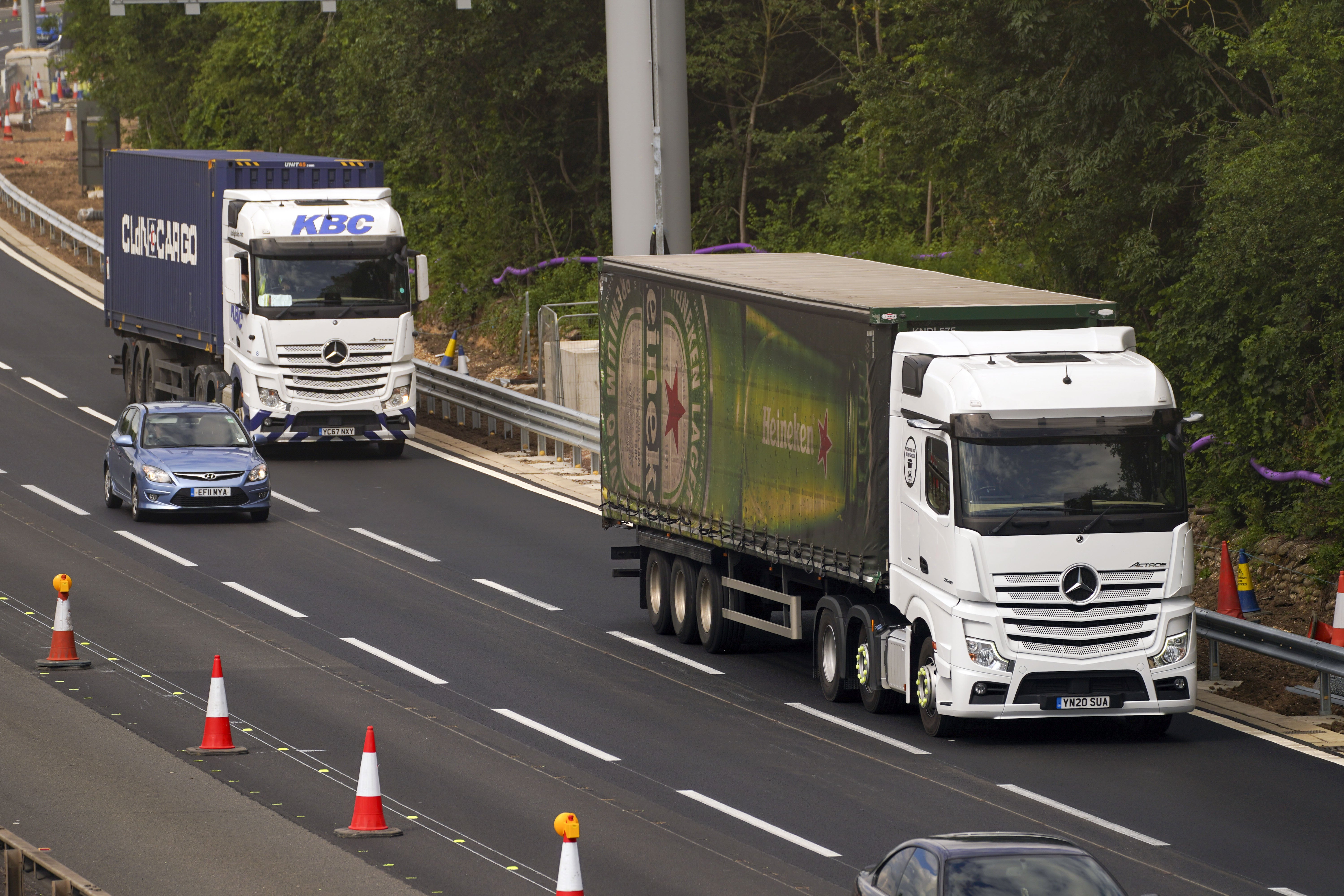Collapse in HGV apprentices behind empty shelf crisis, warns Labour
Exclusive: Figures show numbers of transport trainees has plummeted since 2015

A collapse in the numbers of people signing up for transport and warehousing apprenticeships has driven the current delivery crisis, causing empty shelves in supermarkets and shortages at fast-food chains, Labour has claimed.
The party released figures showing that entrants on transportation apprenticeships have fallen by almost half (49 per cent) since 2015-16 and by a massive 83 per cent for warehousing and distribution.
Shadow minister for green and future transport Kerry McCarthy blamed the government for failing to ensure the supply of new drivers in an industry facing the “ticking time-bomb” of a rapidly ageing workforce, with the average person behind the wheel of an HGV now 55 years old and fewer than 1 per cent aged under 25.
With drivers reaching retirement at a rate of 6,000 a year and others leaving the profession early, the current crisis can be expected to worsen unless urgent action is taken to attract more young people onto apprenticeships, she said.
Recent weeks have seen major chains including Nando’s, McDonald’s and Greggs blame distribution problems for shortages preventing them from serving popular items to customers, while the boss of Iceland supermarkets has warned that the supply chain crisis could “cancel” Christmas.
The Road Haulage Association says the UK is around 100,000 drivers short, with Brexit and Covid blamed for worsening chronic labour shortages in the industry.
In July, ministers announced a short-term relaxation to limits on drivers’ working hours and said measures were being taken to increase the throughput of HGV driving tests in response to the crisis, after the pandemic led to a 30,000 fall in the number of drivers getting their heavy goods licences last year.
But the government has resisted industry calls for a relaxation of immigration rules to try to attract back some of the thousands of drivers from EU countries who have left the UK since Brexit.
On Friday Labour accused the government of failing to ensure adequate supplies of home-grown drivers, pointing to figures showing that numbers of trainees in key apprenticeships were falling long before the impact of the virus and EU withdrawal was felt.
Numbers on transportation operation and maintenance courses fell from 16,620 in 2015-16 to 8,430 in 2020-21, while starts on warehousing and distribution roles declined from 14,860 to 2,500 over the same period.
“The shortage of drivers is now visible on a daily basis through empty shelves in shops and closures on our high streets,” said Ms McCarthy.
“But these stats show things are likely to get even worse, as the government has failed to encourage young people into the industry to replace retiring drivers. This is completely unsustainable.
“It is increasingly clear that the government does not have a plan to address a national crisis that is grinding our economy to a halt.”
With only 3,000 vocational driving tests being taken a week, she warned it will be months before the huge shortage in drivers is filled. And she said it was dangerous to rely on longer hours for drivers to keep the supply chain moving.
Labour has called on the government to work with the Migration Advisory Committee to determine whether HGV driving should be designated a skills-shortage profession under the immigration points system, to allow the recruitment of more foreign drivers.
A government spokesperson said: “As driver shortages across Europe demonstrate, this is a widespread problem caused by a range of factors, including an ageing workforce.
“Most of the solutions are likely to be driven by industry, with progress already being made in testing and hiring, and a big push towards improving pay, working conditions and diversity.
“We recently announced a significant package of measures, including plans to streamline the process for new drivers to gain their HGV licence, and increased capacity for HGV driving tests.”
Join our commenting forum
Join thought-provoking conversations, follow other Independent readers and see their replies
Comments
Bookmark popover
Removed from bookmarks